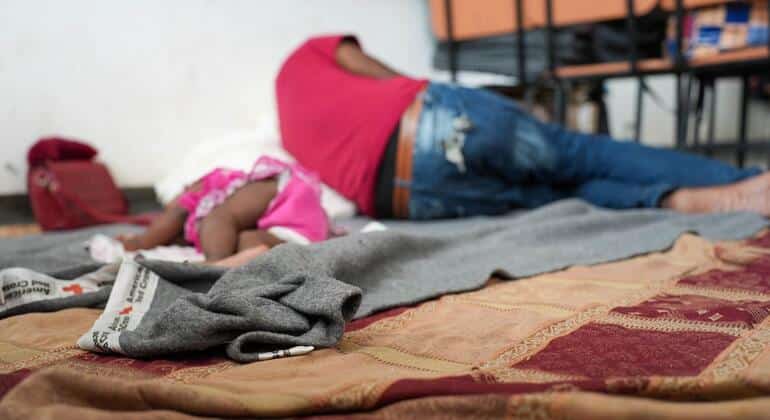Here’s the translation of your text into American English:
—
Haiti is facing an unprecedented crisis, with an imminent state of collapse due to the increasing control of gangs and the inaction of institutions in Port-au-Prince. This was stated by Miroslav Jenča, the UN Under-Secretary-General for the Americas, during a recent Security Council meeting. Despite some political efforts within the country, violence has escalated, affecting entire communities both in the capital and in other regions.
Jenča compared the current situation to his visit in January, when paralysis in the city was already evident. Currently, gang dominance has alarmingly increased. According to data from the United Nations Integrated Office in Haiti (BINUH), over 4,000 murders have been recorded so far in 2025, with a notable rise in victims among children and women. This climate of violence has led to a record number of 1.3 million internally displaced persons in the country.
The advance of armed groups has also been felt in the northern part of the country, where a recent attack in La Chapelle resulted in the displacement of approximately 9,000 people and the destruction of a police station. In the face of weakening institutions, many communities have begun to rely on self-defense groups, which has led to human rights violations. In the past three months, at least 101 individuals linked to gangs have been executed without trial.
Sexual violence has surged dramatically, with 364 incidents reported between March and April, mostly affecting women and girls. Jenča emphasized that any political progress will be unfeasible without improvements in security and highlighted the work of the Multinational Support Mission for Security led by Kenya, while lamenting the loss of two officers in the line of duty.
The future of Haiti remains uncertain. Jenča has called for increased contributions to the mission’s trust fund and supported the proposal to establish a UN logistical support office to strengthen the mission’s operational capacity. In this regard, he proposed adjusting the BINUH mandate to be more effective in light of the country’s complex situation.
Additionally, the Council heard concerns from the Executive Director of the UN Office on Drugs and Crime (UNODC), who denounced the growing influence of private security companies and self-defense groups involved in extrajudicial actions and collusion with gangs. This has exacerbated the demand for weaponry and the illicit arms trade.
On another note, the UNODC has focused on training Haitian coast guards to combat drug and arms trafficking. The official emphasized the need for a coordinated regional effort to fight organized crime and mitigate the flows that perpetuate violence in Haiti. Given the critical situation, Jenča concluded his remarks with an urgent call to action: “We cannot fail Haiti at this critical moment.”
—
Feel free to ask if you need any adjustments or further assistance!
via: MiMub in Spanish











